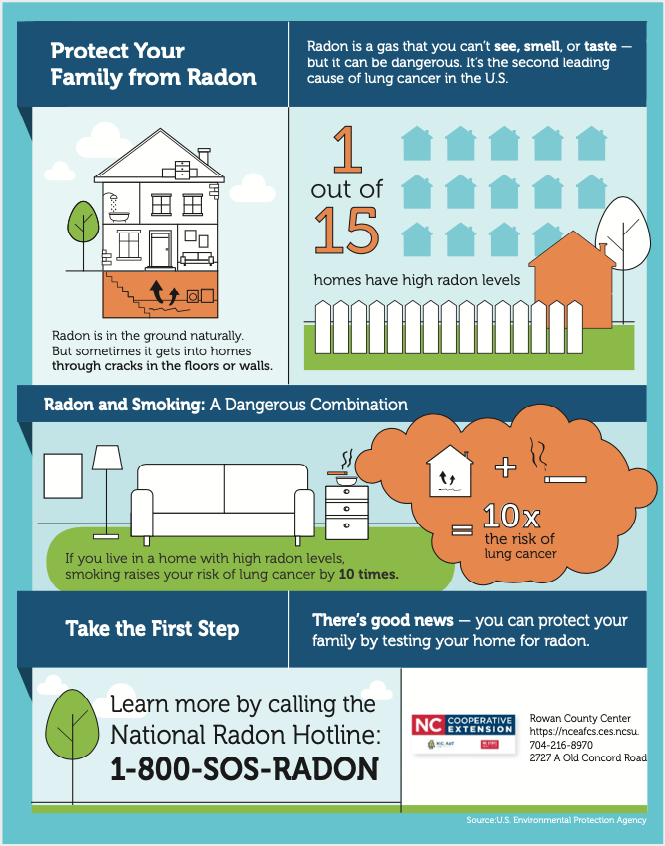Check the Radon Level in Your House
go.ncsu.edu/readext?766247
en Español / em Português
El inglés es el idioma de control de esta página. En la medida en que haya algún conflicto entre la traducción al inglés y la traducción, el inglés prevalece.
Al hacer clic en el enlace de traducción se activa un servicio de traducción gratuito para convertir la página al español. Al igual que con cualquier traducción por Internet, la conversión no es sensible al contexto y puede que no traduzca el texto en su significado original. NC State Extension no garantiza la exactitud del texto traducido. Por favor, tenga en cuenta que algunas aplicaciones y/o servicios pueden no funcionar como se espera cuando se traducen.
Português
Inglês é o idioma de controle desta página. Na medida que haja algum conflito entre o texto original em Inglês e a tradução, o Inglês prevalece.
Ao clicar no link de tradução, um serviço gratuito de tradução será ativado para converter a página para o Português. Como em qualquer tradução pela internet, a conversão não é sensivel ao contexto e pode não ocorrer a tradução para o significado orginal. O serviço de Extensão da Carolina do Norte (NC State Extension) não garante a exatidão do texto traduzido. Por favor, observe que algumas funções ou serviços podem não funcionar como esperado após a tradução.
English
English is the controlling language of this page. To the extent there is any conflict between the English text and the translation, English controls.
Clicking on the translation link activates a free translation service to convert the page to Spanish. As with any Internet translation, the conversion is not context-sensitive and may not translate the text to its original meaning. NC State Extension does not guarantee the accuracy of the translated text. Please note that some applications and/or services may not function as expected when translated.
Collapse ▲National Radon Action Month is a time to increase awareness of radon and to spur advocacy on behalf of those suffering from the emotional, financial and physical burden of radon exposure. Radon is a naturally occurring radioactive gas that you cannot see, smell, or taste so it could be present at dangerous levels in your home without you knowing it.
Radon is the second leading cause of lung cancer deaths in the United States and the number one leading cause among non-smokers, claiming more than 20,000 lives every year. Exposure to radon is a preventable health risk, and testing radon levels in your home can help prevent unnecessary exposure. If a high radon level is detected in your home, it can be fixed through mitigation, radon reduction techniques, and reduction systems.
This year, the North Carolina Radon Program is giving 3,000 radon test kits free of charge. These are short-term kits but can be very helpful in determining if there is a presence of radon in your home. They will provide one test kit per household.
To get your radon kit, go to the North Carolina Radon Program site.
Also, here are a few additional sites that you can visit for more information:
NC State Extension Healthy Homes – Radon
Environmental Protection Agency – Radon
Toi N. Degree, Associate Family & Consumer Education Agent with North Carolina Cooperative Extension. Toi may be reached by phone at 704-216-8970 or by email at toi_degree@ncsu.edu.





